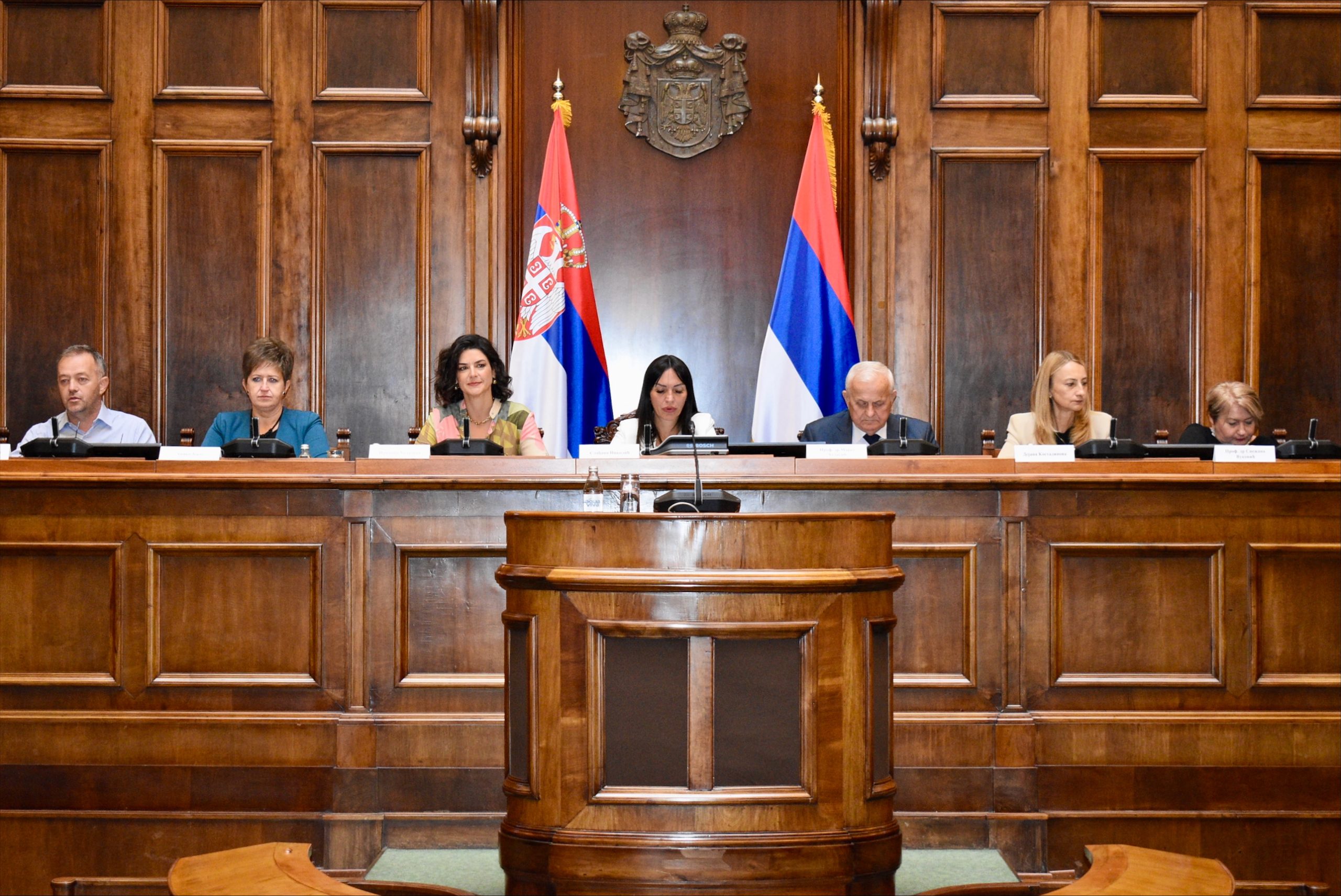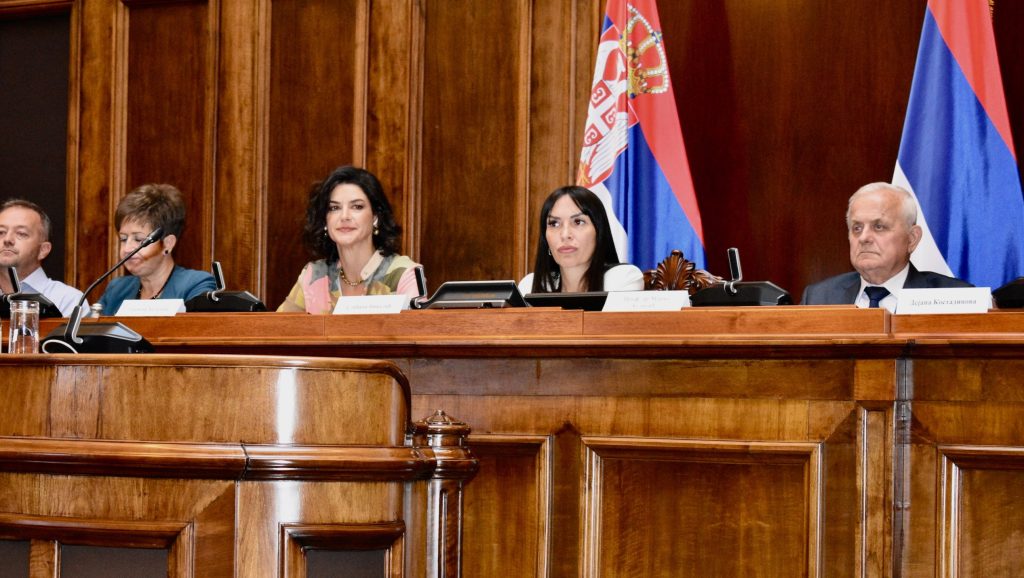The results of the National Report on Inclusive Education for the period 2022–2024 were presented at the National Assembly of Serbia, including findings, challenges, and recommendations for better implementation.
The report was created within the framework of the “IPA 2020” project, aimed to improve and ensure equal access to pre-tertiary education for children who require additional support in education.
In addition to the establishment of thirteen resource centers across Serbia, as new organizational units within the education system, the report highlighted the strengthening of staff capacities in educational institutions; a significant increase in the number of pedagogical assistants who support Roma students, their schools, and peers; as well as an increased number of students attending classes according to an Individualized Education Plan (IEP).
The public hearing was attended by Plamena Halačeva, Deputy Head of the EU Delegation to Serbia, as well as Dejana Kostadinova, Director of UNICEF in Serbia.
“For the European Union, quality and inclusion are at the heart of the educational vision. Commitment to ensuring that every individual has the opportunity to grow and meaningfully contribute to society is a value we must actively preserve. The EU is proud to stand by Serbia on this path. I hope that new opportunities, such as the Child Guarantee being promoted both in the European Union and the Western Balkans, will help in finding new, effective, and efficient solutions to support every child”, said Plamena Halačeva.
The report also emphasized the challenges in the adequate implementation of the intended reforms, such as the uneven and inconsistent application of regulations, a lack of coordination between reforms across other sectors (primary education, social protection, and healthcare), which inevitably affects the quality of support at the local level; as well as insufficient training of education workers to provide quality education and individualized support to students.
The main recommendations of the report highlight the need to establish effective operational mechanisms and accelerate the implementation of all proposed measures, strengthen mutual cooperation, as well as clearly identified needs for improving social policies, stronger collaboration with local communities, and greater efforts to address the issue of segregation.
The presentation of the National Report on Inclusive Education in the Serbian Parliament was also attended by Slađana Nikolić, Head of the Cabinet of the Minister of Education, who stated that Serbia will continue to improve its inclusive education system in line with the Education Development Strategy until 2030, through further strengthening of cooperation between education, social protection, and healthcare, as well as through the advancement and sustainable financing of resource centers.





